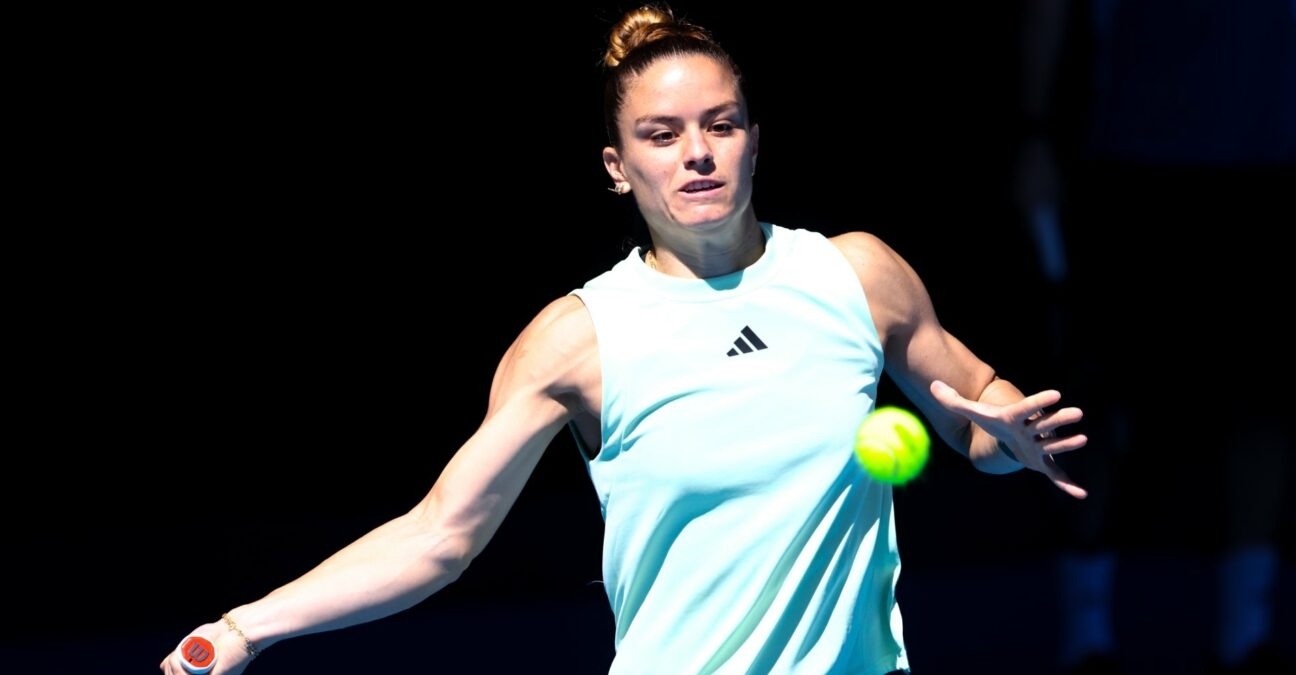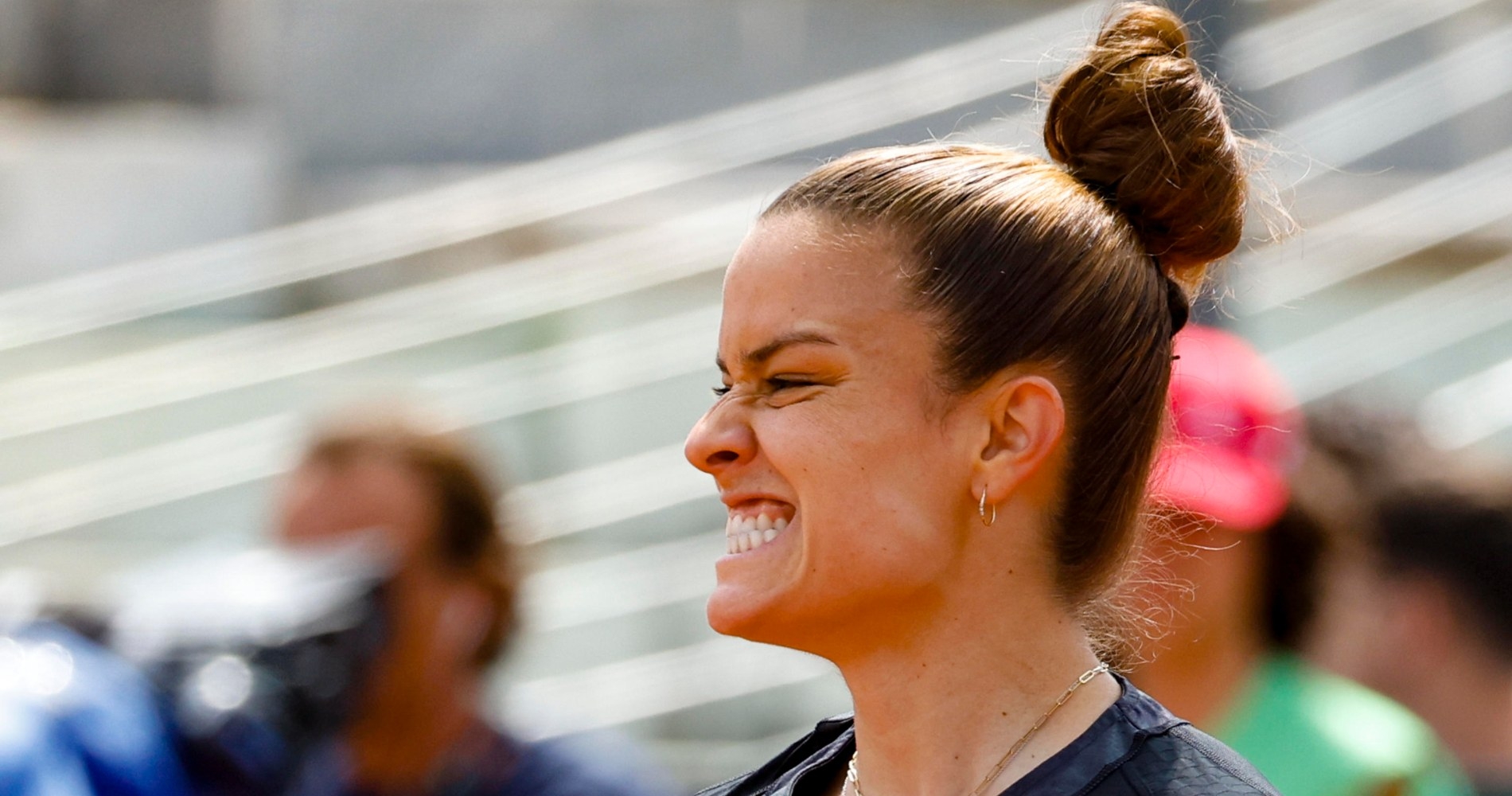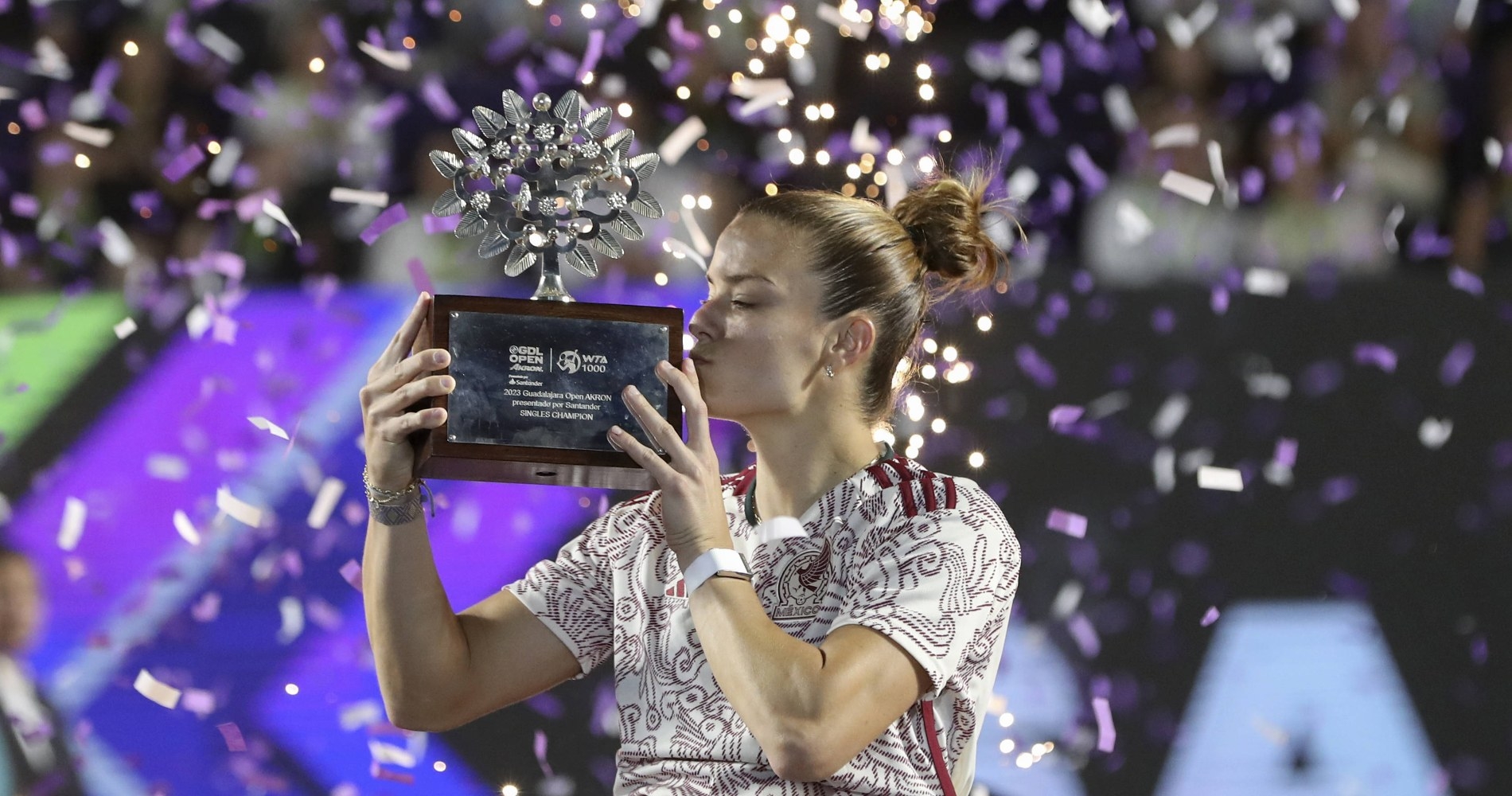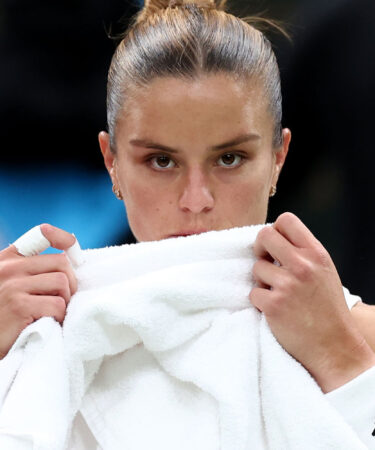Maria Sakkari interview: “I found a way to be happy, to be free, and just be satisfied with myself”
Having considered quitting at one stage in 2023 after three first-round losses in the slams, the Greek says working with a mental coach has changed her perspective
 Zuma/Panoramic
Zuma/Panoramic
In the second season of the Netflix behind the scenes documentary, Break Point, which was released earlier this week, Maria Sakkari details the ups and downs of her 2023, a year in which she lost in the first round of three straight Grand Slams and seriously considered giving up tennis.
It’s a stark portrait of life on Tour when things are not going well. To her immense credit, Sakkari turned things around later in the year, winning her first WTA title in Guadalajara and qualifying once again for the season-ending WTA Finals.
“I would say (2023 was) very up and down,” Sakkari told Tennis Majors at Melbourne Park on Saturday. “If I could use one word, it would be a roller-coaster, tennis-wise and emotionally as well. But I think the most important thing is that I found a way to be happy, be free, and just be satisfied with myself. And that was not only because I won Guadalajara but was because I was really myself on the court.”
Being No 6, losing three first rounds in slams, is probably a record
Maria Sakkari
Sakkari’s LOW POINTS OF 2023
After her first-round loss at the US Open, Sakkari broke down in tears in her press conference. Distraught, she considered quitting the sport.
“It was very difficult,” Sakkari said. “I mean, being a top 10 player, being six in the world and losing three first rounds and Grand Slams, that’s probably a record, that’s never happened before. It’s something that affects you.
“You always have it in your mind that it shouldn’t affect you, but it does, in a way. A lot of things were in my mind. And I was like, asking, why? What am I doing wrong? What can I do better? And I just went back to scratch, started just trying to get the ball on the court, not thinking anything that is irrelevant, and just do what I know, to do best, just playing tennis. I think that was why I just managed to turn things around.”

HIRING mental coach WAS KEY
Dealing with pressure moments, in big matches, is an issue for most players and Sakkari has had her share of heartbreaking losses from winning positions. It was a team decision to seek out a mental coach to help her and it worked wonders.
“It has really helped me,” she said. “First of all, in the way I see life. I have a had a very good life back home, my parents, financially… I had anything I wanted, but they always taught me that we have to work hard in life, which was something that I always appreciated and respected, what they gave me and what I had in my hands.
“Both my parents were hard-working. That, for me, was very important. And it helped me really appreciate what I have, working with a specialist, because I think something that we all have to do in life and we all have to take into consideration is that nothing is for granted. We just have to be happy with what we have.”
“I was always hard on myself”
Maria Sakkari
The fact that Sakkari is a perfectionist didn’t help, perhaps, in how she dealt with defeats.
“I was always hard on myself,” she said. “I always want more, I always will push for more, but the thing is that now finally, first of all, I appreciate what I have and also I’m OK with what I have now. If I was to stop tennis tomorrow, I know I’ve done very very good in my life. Not only because I got to No 3 but just because I feel good to be myself. Of course I want to win a Grand Slam. I want to win this week. That doesn’t change. It’s just that my perspective has changed.”
Working with a mental coach used to be taboo in tennis, and in sport in general, a sign of weakness. Now, thankfully, it’s seen for what it is, a useful tool that can really help players who perform every week in pressure situations, dealing with losses on their own, trying to problem solve.
“It’s not only players, I think people in general, like, if you went to therapy, they thought that you probably have some disease or something or there’s something wrong with you,” she said. “I think that everyone has to do in life because no one’s perfect. And everyone’s you know, has their demons.”

“ACCEPTANCE IS GOING TO BE MY FRIEND”
At Roland-Garros in 2021, Sakkari was one point from reaching her first Grand Slam final, only for Barbora Krejcikova to save the match point, turn the match around and go on to win the title. Such losses were tough to take for Sakkari, who wanted so much to win a slam.
Andy Murray once said that it was only when he finally accepted that he may never win a Grand Slam that he was able to free himself up, going on to win the OIympics before picking up the US Open in 2012 and Wimbledon, twice, in 2013 and 2016. Sakkari said she felt the same.
“I’ve already told my mental coach that acceptance is going to be my friend from now on. That’s the biggest thing in my life, I think accepting different kind of situations and accepting everything that happens in life, so, as you said, Andy accepting that he might not win a Grand Slam, that’s the same with me. I’ve accepted that. Maybe that was my ceiling. Not that I’m not going to try for more. That’s a different thing. But I’ve accepted it. I’m going to try and go for something bigger.”
In Break Point, Sakkari describes talks about being trolled on social media, criticism from behind a screen that really hurts. Working with the mental coach has helped there, too.
“I still have all the the apps but I just don’t care,” she said. “As I said on Netflix, I don’t give a F what people think. I kind of feel like if you erase them, you can run away from the problem. Of course, it’s very healthy if you you don’t have any of these, but at the same time, you can have them but also use them the right way. Then you’re just facing the problem and just facing the reality.”
EXCITED BY AUSTRALIAN OPEN CHANCES
After taking a break at the end of 2023, Sakkari has started 2024 strongly, winning all three of her matches at the United Cup. On a surface that should suit her, and in the city with the biggest Greek population outside of Athens, she won’t be lacking for support, either.
“I had three very good matches,” she said. “I think the match with Leylah (Fernandez) was super-high level from both of us. I’ve changed a couple of things during preseason (including a new racquet) and it seems like I’m on the right way. I just feel like good, I feel relaxed. It’s exciting.”








